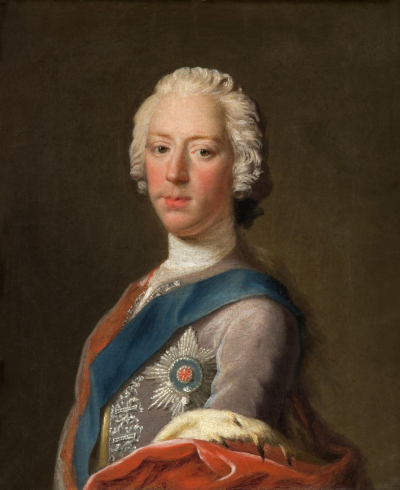The Battle of Culloden (; Scottish Gaelic: Blr Chil Lodair) was the final confrontation of the Jacobite rising of 1745. On 16 April 1746, the Jacobite army of Charles Edward Stuart was decisively defeated by a British government force under Prince William Augustus, Duke of Cumberland, on Drummossie Moor near Inverness in the Scottish Highlands. It was the last pitched battle fought on British soil.
Charles was the eldest son of James Stuart, the exiled Stuart claimant to the British throne. Believing there was support for a Stuart restoration in both Scotland and England, he landed in Scotland in July 1745: raising an army of Scots Jacobite supporters, he took Edinburgh by September, and defeated a British government force at Prestonpans. The government recalled 12,000 troops from the Continent to deal with the rising: a Jacobite invasion of England reached as far as Derby before turning back, having attracted relatively few English recruits.
The Jacobites, with limited French military support, attempted to consolidate their control of Scotland, where, by early 1746, they were opposed by a substantial government army. A hollow Jacobite victory at Falkirk failed to change the strategic situation: with supplies and pay running short and with the government troops resupplied and reorganised under the Duke of Cumberland, son of British monarch George II, the Jacobite leadership had few options left other than to stand and fight. The two armies eventually met at Culloden, on terrain that gave Cumberland's larger, well-rested force the advantage. The battle lasted only an hour, with the Jacobites suffering a bloody defeat; between 1,500 and 2,000 Jacobites were killed or wounded, while about 300 government soldiers were killed or wounded. While perhaps 5,000 6,000 Jacobites remained in arms in Scotland, the leadership took the decision to disperse, effectively ending the rising.Culloden and its aftermath continue to arouse strong feelings. The University of Glasgow awarded the Duke of Cumberland an honorary doctorate, but many modern commentators allege that the aftermath of the battle and subsequent crackdown on Jacobite sympathisers were brutal, earning Cumberland the sobriquet "Butcher". Efforts were subsequently made to further integrate the Scottish Highlands into the Kingdom of Great Britain; civil penalties were introduced to undermine the Scottish clan system, which had provided the Jacobites with the means to rapidly mobilise an army.
Charles Edward Louis John Casimir Sylvester Severino Maria Stuart (20 December 1720 – 30 January 1788) was the elder son of James Francis Edward Stuart, grandson of James II and VII, and the Stuart claimant to the thrones of Great Britain and Ireland after 1766 as Charles III. During his lifetime, he was also known as "the Young Pretender" and "the Young Chevalier"; in popular memory, he is known as Bonnie Prince Charlie. He is best remembered for his role in the 1745 rising; his defeat at Culloden in April 1746 effectively ended the Stuart cause, and subsequent attempts failed to materialise, such as a planned French invasion in 1759. His escape from Scotland after the uprising led to his portrayal as a romantic figure of heroic failure.

1745Nov, 8
Charles Edward Stuart invades England with an army of ~5000 that would later participate in the Battle of Culloden.
Choose Another Date
Events on 1745
- 11May
Battle of Fontenoy
War of the Austrian Succession: Battle of Fontenoy: French forces defeat an Anglo-Dutch-Hanoverian army. - 28Jun
Siege of Louisbourg (1745)
A New England colonial army captures the French fortifications at Louisbourg (New Style). - 19Aug
Jacobite rising of 1745
Prince Charles Edward Stuart raises his standard in Glenfinnan: The start of the Second Jacobite Rebellion, known as "the 45". - 19Aug
Battle of Kars (1745)
Ottoman-Persian War: In the Battle of Kars, the Ottoman army is routed by Persian forces led by Nader Shah. - 8Nov
Battle of Culloden
Charles Edward Stuart invades England with an army of ~5000 that would later participate in the Battle of Culloden.

 English
English  español
español  français
français  português
português  русский
русский  العربية
العربية  简体中文
简体中文 